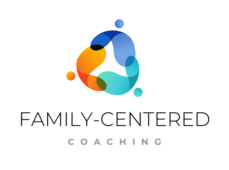Many organizations are more familiar with directing participants, delivering services, and relying on staff expertise to solve problems or address issues. Through a Family-Centered Coaching mindset–and culture–staff see participants as experts in their lives and having the solutions to their own problems. Staff are no longer required to have all the answers for the participant. Instead, they work in partnership with the participant to evoke solutions to their own challenges.
Developing a Family-Centered Coaching mindset does not happen overnight. It is a long-term process to shift from a staff-driven mindset to an established coaching mindset. But there are things your organization can do to begin building this culture.
You might start with a coaching approach in one team or facet of your services. While siloed, over time you can build on coaching strengths to have a more consistent family-centered approach across all participants.
Another approach is to bring staff together from different, yet complementary programs such as workforce development and early learning for Family-Centered Coaching training. This practice helps staff learn about the programs their colleagues offer and expands their relationships and resources to serve the whole family. Additionally, when staff from different programs start to work together they break down silos, learn coaching skills from one another to develop a Family-Centered Coaching culture.
Discover what mindsets are driving your programs:
Staff-Driven Mindset
Staff and management focus on solving immediate problems for families and rarely partner with families; the approach is centered more on fixing than coaching.
Siloed Coaching Efforts
Coaching happens inconsistently across the organization, if at all. Individual staff members or departments are the champions of this coaching approach. Leadership does not champion coaching approaches, and the organizational structure does not support it.
Emerging Coaching Mindset
The value of coaching is recognized across the organization; however, the coaching approach is utilized by individual staff members or departments. Skills training is provided to select staff members. Little or no ongoing coaching professional development or training is provided.
Established Coaching Mindset
Leadership understands the value of a coaching culture and promotes this to employees. Mid-level management supports the family-centered approach and actively works with coaches to guide family-centered work. Coaching is occurring in multiple departments, and efforts are coordinated within the organization. Coaching is built into job descriptions and embedded in performance evaluations of staff members. Ongoing coaching training and support are provided to staff in multiple departments.
The Prosperity Agenda provides these resources as the designated national administrator of Family-Centered Coaching.

